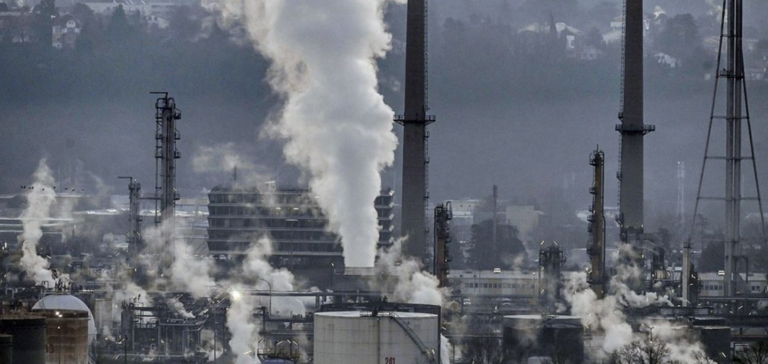France, with its proactive approach to decarbonization, has taken a significant step forward. Manufacturers such as ArcelorMittal, TotalEnergies and Saint-Gobain have signed “transition contracts” with the French government. In addition, these agreements mark a firm commitment to the fight against climate change, aiming for an ambitious reduction in greenhouse gas emissions, in line with national targets.
Emissions reduction targets and strategies
The commitments made concern 50 of the most polluting industrial sites, including refineries, for a total of 55 sites. However, the signing ceremony, held in Paris, was attended by key political and industrial figures, including Prime Minister Elisabeth Borne and ministers Roland Lescure, Agnès Pannier-Runacher, and Dominique Faure. Emphasis was placed on the importance of these agreements for achieving France’s climate objectives.
Financial and logistical support from the French government
The industrial sector, representing 11% of national GDP and responsible for 20% of greenhouse gas emissions, is at a crucial point. The French government is committed to providing financial and logistical support for this transition. Indeed, the contracts define emission reduction trajectories in line with the targets set by President Emmanuel Macron, aiming for a 45% reduction in emissions by 2030 and 50% by 2032, compared with 2015.
Strategic levers for industrial decarbonization
The government plans to cover the additional costs associated with decarbonization, by supporting initiatives such as connection to electricity and hydrogen networks. The main levers include electrification, biomass utilization, carbon capture and hydrogen exploitation. As part of France 2030, of the 5.6 billion euros earmarked for these projects, over 1.2 billion euros have already been invested between 2022 and 2023.
Minister Agnès Pannier-Runacher underlined the concrete progress of these projects, which are now beginning to materialize. However, the contracts do not include an explicit penalty clause in the event of failure to meet commitments. Roland Lescure, while acknowledging the somewhat symbolic aspect of these agreements, insists on their nature as mutual commitments. In return for financial support, manufacturers commit to tangible emission reductions. If they fail to comply, they will lose access to subsidies.
This French initiative marks a decisive step in the ecological transition of the industrial sector. Despite the absence of formal sanctions, the commitment of industry, backed by substantial government support, paves the way for a concrete reduction in greenhouse gas emissions, in line with national and international climate objectives.






















